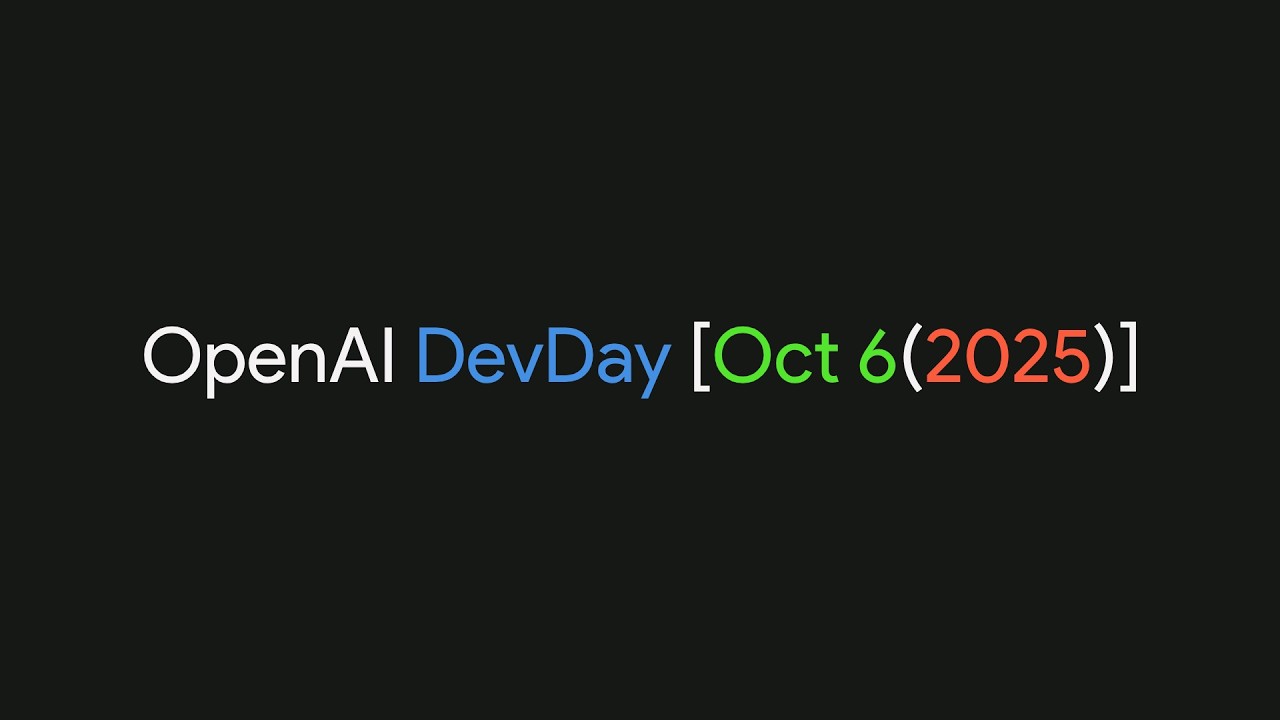The OpenAI Dev Day 2025 keynote highlighted new developer tools including an apps SDK for creating ChatGPT-integrated apps, the Agent Kit for building AI agents with a user-friendly interface, expanded Codex coding assistant capabilities, and enhanced APIs like Sora 2 for customizable video generation and cost-effective real-time voice models. While the presentation showcased practical innovations and competitive pricing aimed at broadening AI accessibility, some concerns about app discovery and multi-agent functionalities remain open for future exploration.
The OpenAI Dev Day 2025 keynote introduced four main themes: apps inside ChatGPT, a new system called Agent Kit for building agents, improvements to the Codex product for coding, and updates to models and APIs. The first announcement focused on the apps SDK, which allows developers to create apps within ChatGPT. While this is an evolution of previous plugin efforts, the speaker expressed some skepticism about discovery challenges, especially when competing with major OpenAI partners like Canva and Expedia. Examples included using Canva to turn outlines into presentations and integrating Coursera courses with interactive chat, showcasing potential but leaving questions about accessibility and subscription requirements.
The second major announcement was Agent Kit, a suite of tools designed to help developers build, deploy, and optimize AI agents. This includes an agent builder with a drag-and-drop interface, a connector registry for linking various services, and a chat kit to help create chat applications. The agent builder stood out as the most exciting feature, enabling users without deep AI engineering expertise to create agent workflows quickly, primarily for internal organizational use. Although multi-agent systems or agent-to-agent communication were not discussed, the connector registry hints at future integrations with third-party services. Additional updates included new guardrails and email-related features for agents, addressing common user challenges.
The third highlight was the general availability of Codex, OpenAI’s coding assistant, which has seen significant growth in daily usage since early August. While no specific user numbers were shared, the keynote emphasized that Codex has processed over 40 trillion tokens in its first three weeks. The presentation included a demo encouraging voice interaction with Codex and mentioned upcoming admin tools and Slack integration. However, this segment was more about reaffirming OpenAI’s commitment to Codex rather than unveiling major new features.
The final set of updates centered on API improvements, particularly the introduction of Sora 2 for video generation. This new API allows users to customize video length, aspect ratio, and inject images as context. Pricing for Sora 2 is competitive, with basic usage at 10 cents per second and higher resolutions costing more, which could pressure other video API providers to lower prices. Another notable API update was the GPT Realtime Mini, which offers a 70% cost reduction compared to existing models, making real-time voice applications more affordable and attractive. These pricing changes, combined with cheaper image processing, signal a push toward more accessible and versatile AI-powered multimedia tools.
Overall, the keynote was a polished and solid presentation compared to previous launches, with a clear focus on practical tools and developer-friendly features. The speaker expressed optimism about the potential of the agent builder and the more affordable real-time API offerings. While some questions remain about app discovery and multi-agent capabilities, the announcements set the stage for further exploration in upcoming sessions. Viewers were encouraged to share their thoughts on the new tools and pricing changes, highlighting the community’s interest in these evolving AI technologies.
